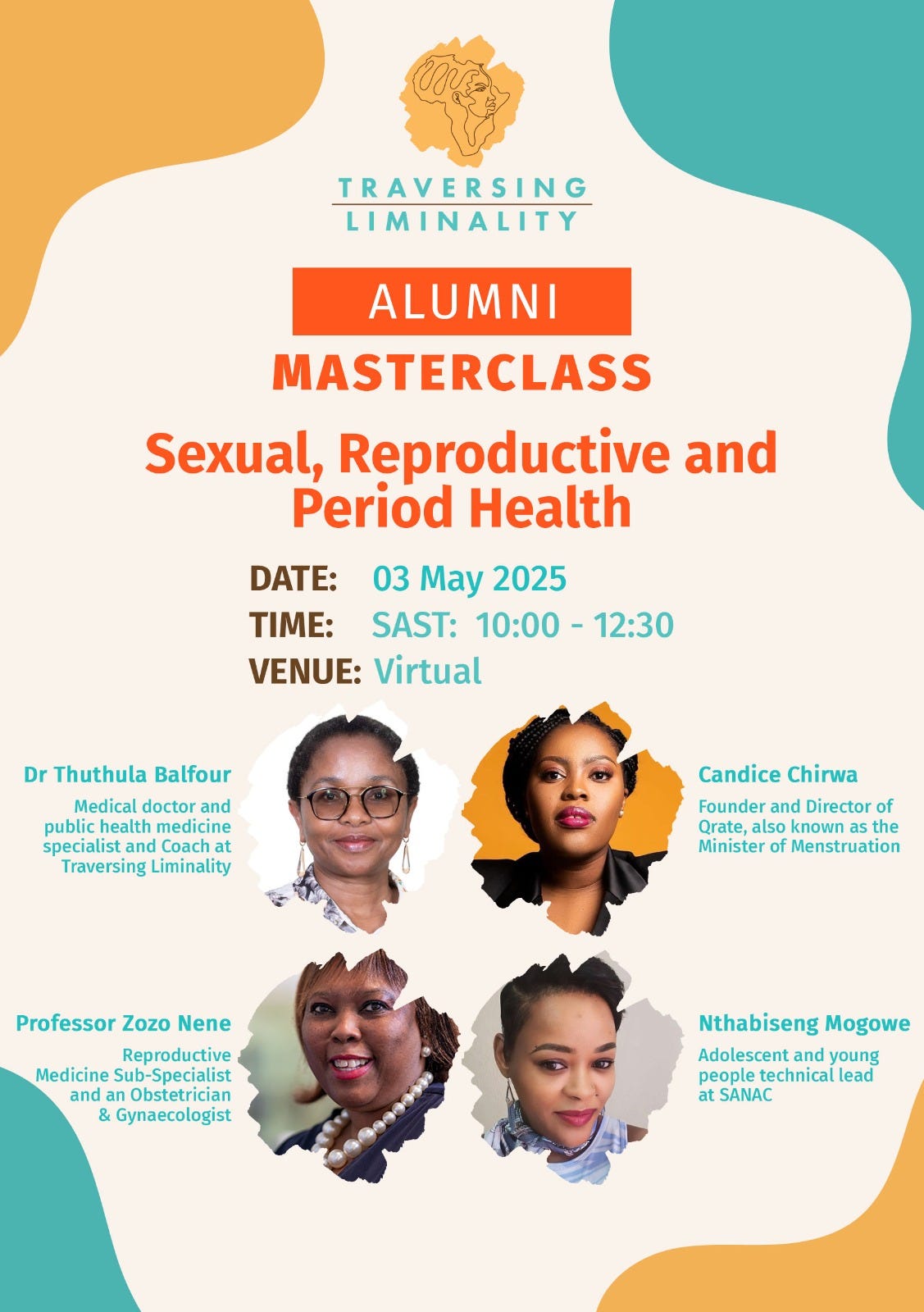Reflection by Metsi Makhetha. (South Africa)
“Writing the History of Africa and Navigating Liminal spaces”
On the continent, amidst numerous Pan African initiatives underway, a picture of how African professionals, notably women, are staking their “Agency” - taking action to shape the future, to give new content to the African narrative and to write the history of our continent, comes to mind.
This year’s Africa day theme is particularly meaningful as it calls for “institutional and collective actions to break the cycle of limiting and perpetuating contemporary ways of enslavement”. Traversing Liminality is proud to bring a transformative quality to the spirit of Africa day and the aspirations expressed in the 2025 Theme.
The transformative contribution of Traversing Liminality lies in the fact that all too often conversations about collaboration and fostering a shared vision of the African continent, take place among the connected and within a certain demographic age.
Traversing Liminality is changing both the landscape and the narrative. It holds the space for young African women as they navigate a plethora of limiting cultural narratives and beliefs, by cultivating their Personal and Professional Mastery. We bear witness to the shifts in how the girls see themselves.
They are breaking the vicious cycle of psychological pain from Africa’s colonial history and cultural narratives that do not honour the dignity of women. They are writing new scripts of African scientists, engineers, knowledge generators, entrepreneurs, law/policy makers, cultural ambassadors and cultural creatives.
They along with the entire Traversing Liminality Community, including its founder, Dr Lulu Gwagwa and all the Black African women professionals who are offering their time, services and expertise, are giving credence to the words of John Schaar: “The future is not some place we are going, but one we are creating. The paths are not to be found but made. And the activity of making them changes both the maker and the destination”.
« Ecrire l'histoire de l'Afrique et naviguer dans les espaces liminaux »
Réflexion sur la Journée Africaine, 2025
Parmi des nombreuses initiatives panafricaines en cours, une image vive de la manière dont les professionnels africains, notamment les femmes, mettent en relief leur « compétences et expertises » pour façonner l'avenir, donner un nouveau contenu au récit africain et écrire l'histoire de notre continent, m’est reviens en mémoire.
Le thème de la Journée de l'Afrique de cette année est particulièrement significatif car il appelle à « des actions institutionnelles et collectives pour briser le cycle de limitation et de perpétuation des formes contemporaines d’esclavage ».
Traversing Liminality se réjouit de pouvoir apporter une qualité transformatrice à l'esprit de la journée de l'Afrique et aux aspirations exprimées dans le thème de 2025.
Sa contribution transformatrice réside dans le fait que trop souvent, les collaborations et la promotion d'une vision partagée du continent africain se limitent à un certain niveau et au sein d'une certaine tranche démographique.
Traverser Liminality change à la fois le paysage et le récit. Il fournit une plate-forme connectant les jeunes femmes africaines noires âgées de 21 à 30 ans, une période hautement critique/liminaire de leur vie. Il leur offre de l'espace pour naviguer une pléthore de récits et de croyances culturelles limitants, en cultivant leur maîtrise personnelle et professionnelle. Nous sommes témoins de leur prise de conscience de leurs capacités innées.
Ces filles brisent le cercle vicieux de la douleur psychologique de l'histoire coloniale de l'Afrique et des récits culturels qui n’honorent pas la dignité des femmes.
Elles écrivent de nouveaux scénarios de scientifiques, d'ingénieurs, de générateurs de connaissances, d'entrepreneurs, de législateurs et de décideurs politiques, d'ambassadeurs culturels et de créateurs culturels africains.
Avec l'ensemble de la communauté Traversing Liminality, y compris sa fondatrice, Dr Lulu Gwagwa, et toutes les femmes professionnelles noires africaines qui offrent leur temps, leurs services et leurs expertises, elles accordent du crédit aux paroles de John Schaar : « L’avenir n'est pas un endroit où nous allons, mais un avenir que nous créons. Les chemins ne sont pas à trouver mais à faire. Et l'activité de les créer change à la fois le créateur et la destination.
Reflection by Maria Dowa, 2025 Cohort (Malawi)
To be a young African woman in Africa is to carry both the beauty and the burden of our continent. It is to walk a journey filled with pride and possibility, but also paved with challenges shaped by culture, patriarchy, and societal expectations.
Being a young African woman today means daring to dream beyond borders, to speak up even when tradition tells us to stay silent. It means embracing our culture while also questioning it and shaping it to reflect equality and justice. It means standing tall, not in spite of our challenges, but because of them.
As we celebrate Africa Month, let us remember that the future of this continent lies in its women and girls. When we rise, Africa rises. When we are empowered, Africa is empowered. And when we honour our heritage while demanding our rightful place, we bring the true spirit of Africa to life.
Happy Africa Month to every resilient, brilliant, and bold African woman. The future is ours to shape.
Gcinamasiko Afrika Day Celebration
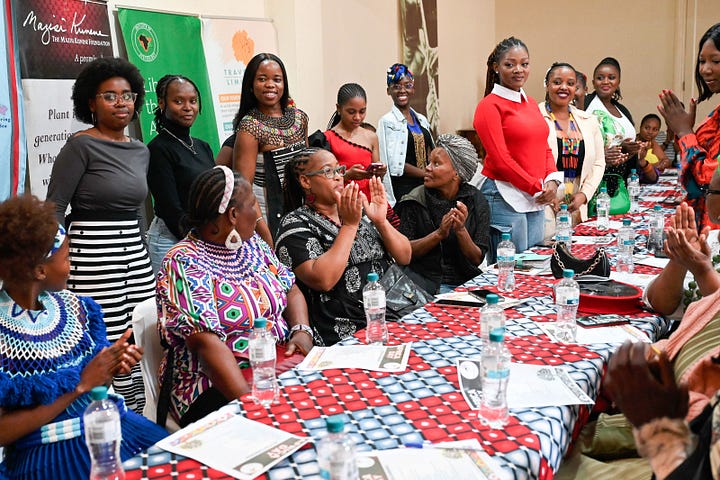
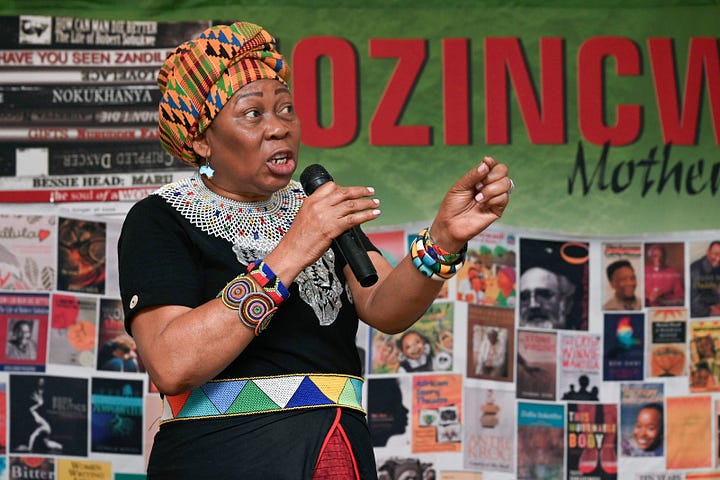
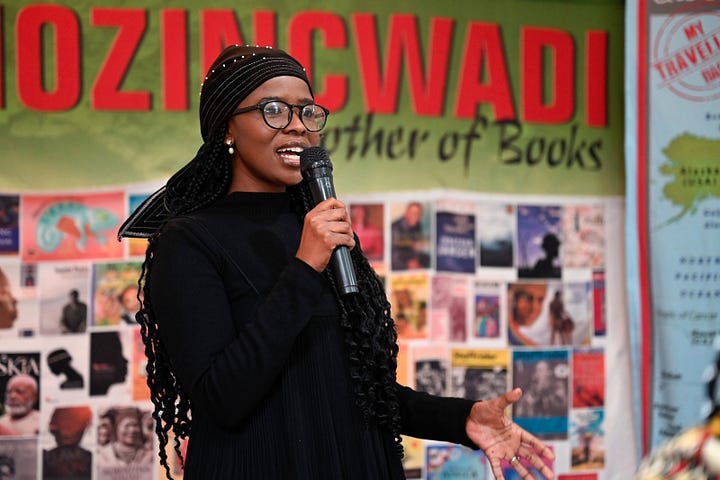
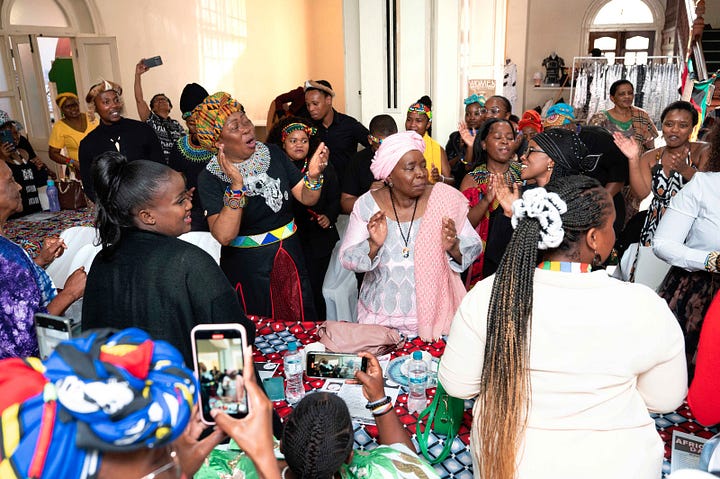
Reflection by Ntokozo Gcwensa, 2025 Cohort (South Africa)
When people of other nations ask you who you are, how are you going to introduce yourself?”, these were the words sung by Dr Gcina Mhlophe at the Gcinamasiko Afrika Day Celebration event. She went on to explain the importance of knowing who you are, your clan names and your family history.
The room was filled with attendees dressed in traditional regalia, showcasing their pride of being African. The songs and poetry performed echoed the beauty of the African people.
Dr Nkosazana Dlamini-Zuma in her speech highlighted the different African civilisations that possessed great knowledge in fields such as astronomy and metallurgy to name a few. It was then that I could imagine Africa thriving once more because of our generation and the others to come. I am proud to be an African.
Deepening Practice Activities
Regional Meet and Greets
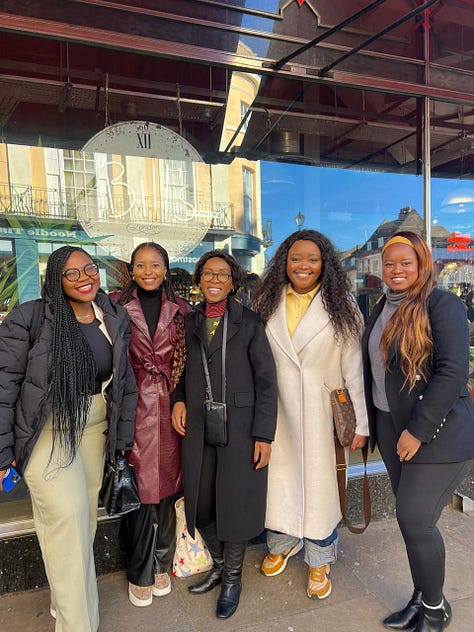
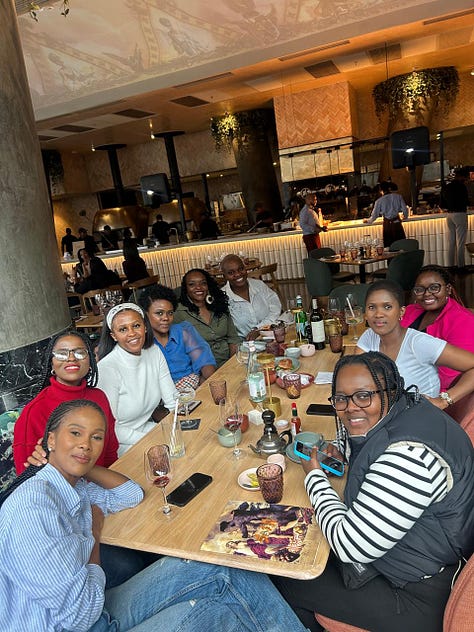
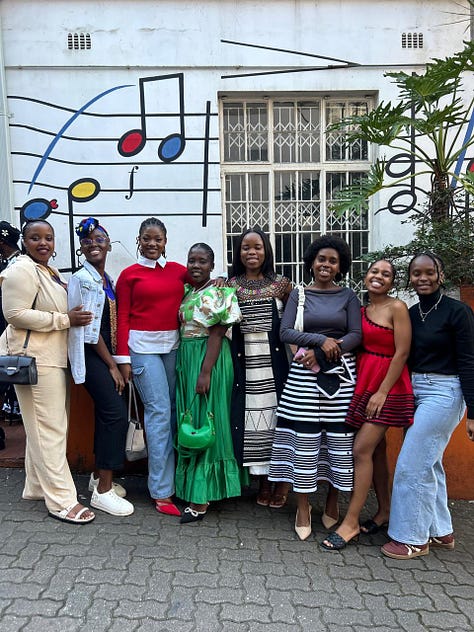
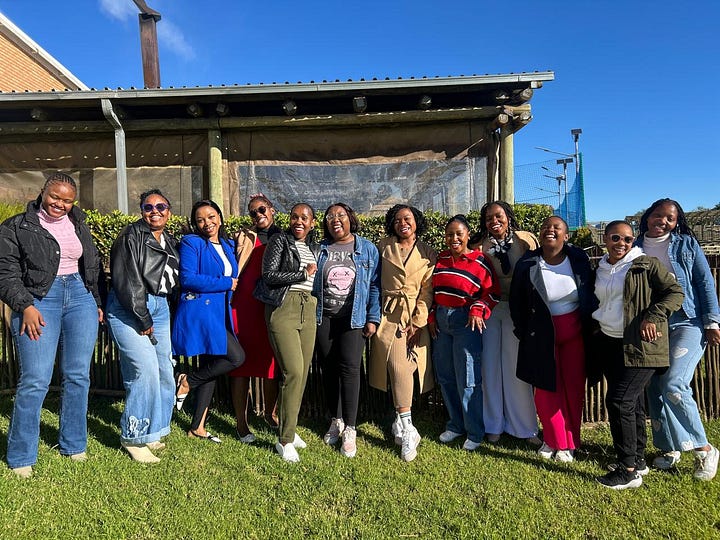
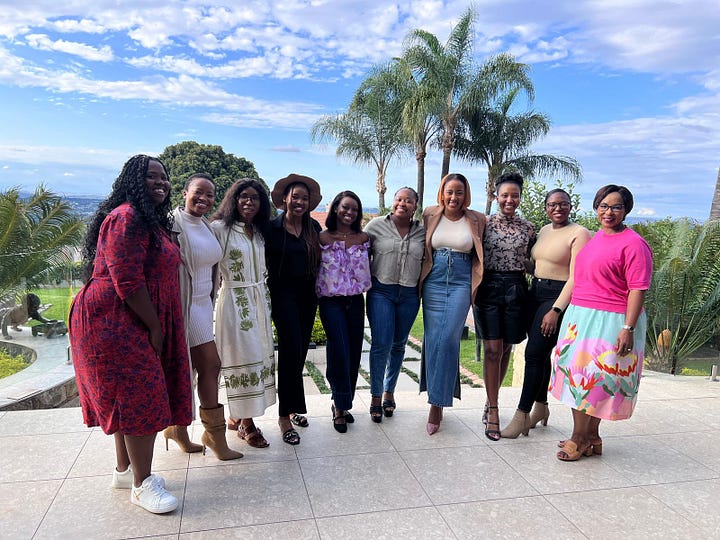
Our Girls across the continent and diaspora come together to break bread, reflect, and network, fostering connections that transcend borders.
This community-building is a hallmark of Traversing Liminality, empowering Black young women to grow and thrive together.
Traversing Liminality attends RMB Latitudes Arts Fair.
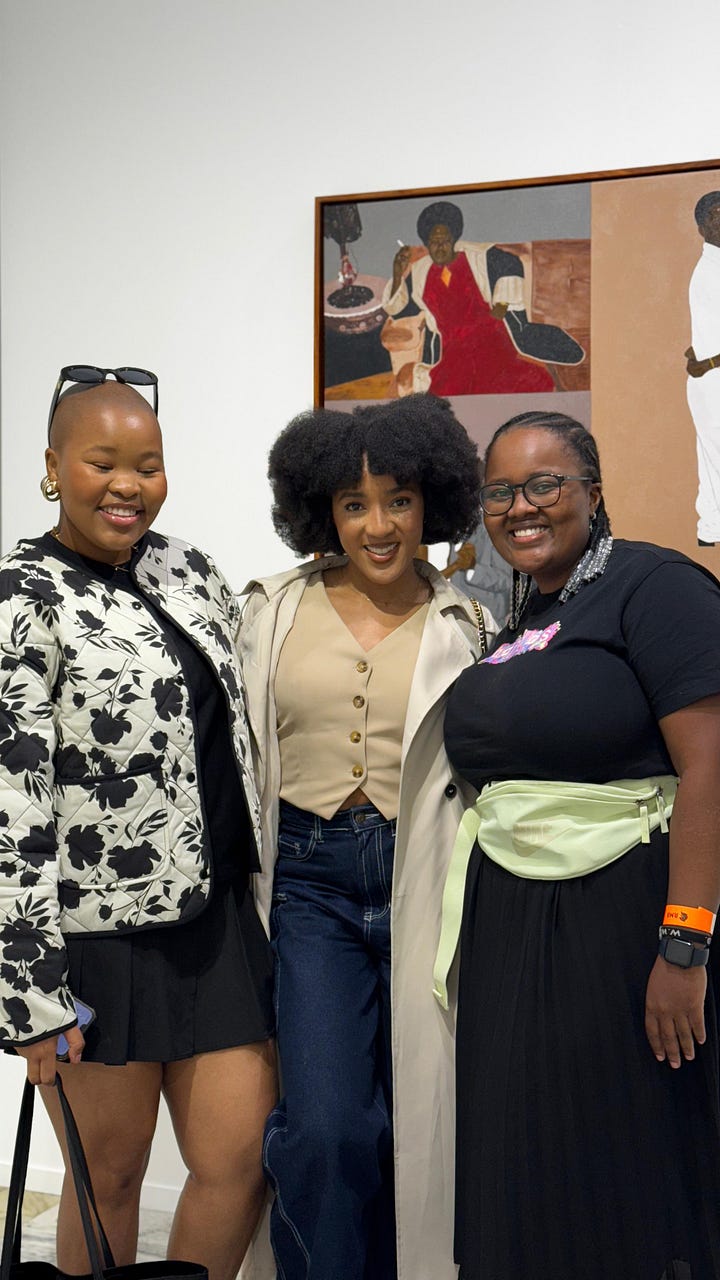
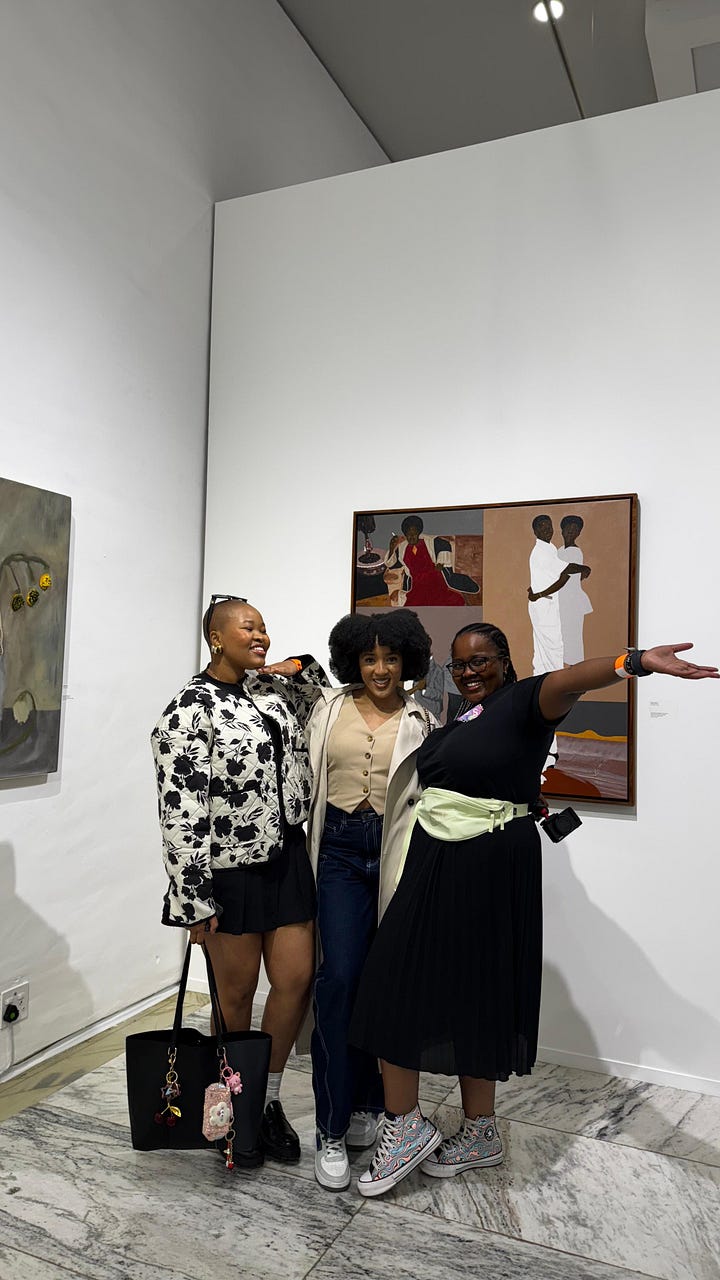
Reflection by Aya Zinganto, 2023 Cohort (South Africa)
This past weekend, I had the joy of attending the RMB Latitudes Art Fair and I’m still reeling in the best way. Set against Johannesburg’s autumn glow, the festival brought together a breathtaking confluence of creativity, community, and culture.
From the moment I arrived, it was clear: people came out in numbers, not just to see art, but to celebrate it. And what a celebration it was! Oceans of expression poured from every corner of the breathtaking venue, each work a story, a provocation, a portal. I was particularly moved by how many women and emerging artists were boldly claiming space and offering fresh, urgent perspectives through their work.
A heartfelt thank you to Traversing Liminality for making this experience possible. I’m so grateful to have been invited into this space with my fellow TL sisters and to walk away with so much beauty still blooming in my mind.
Reflection by Thandi Mvakali, Psychologist (South Africa)
The Traversing Liminality Alumni Masterclass on sexual reproductive and menstrual health encompassed not only the physical aspects but also the mental and social well-being associated with the menstrual cycle. Valuable information and tips for understanding and managing the menstrual cycle—including periods, premenstrual syndrome (PMS), and other related conditions—were shared.
My key takeaway was the importance of women being proactive about their sexual and reproductive health through regular health check-ups and screenings, which can lead to early detection and treatment of potential issues. I also learned that there are many proactive options available, particularly concerning reproductive health. Ultimately, engaging in discussions on these topics helps alleviate anxiety surrounding sexual reproductive health and leads to improved mental health outcomes.
In The News
Traversing Liminality partners with ICF Foundation.
The International Coaching Federation (ICF) Foundation launched the Ignite Initiative as part of its strategic plan to accelerate and amplify impact, to leverage the access that ICF-credentialed coaches have in expanding social impact through coaching activities.
This project runs over a period of 6 months and extends reduced-rate coaching to encourage the continuation of work that aligns with the Sustainable Development Goals (SDG). Traversing Liminality was selected to be part of the cohort that will contribute coaching hours by ICF-credentialed coaches toward this global social impact effort.
The cohort started, symbolically, on this year’s International Coaching Week (ICW 12-18 May 2025), a week that was designed to promote the benefits and impact of coaching to the public. To have the work of Traversing Liminality contribute at a global level is not only monumental but it reaffirms the relevance of our work and now more than ever, the need for and importance of coaching. Read more about the Ignite Initiate here.
Traversing Liminality Faculty in Conversation
Traversing Liminality Faculty members Lebo Bereng and Bosao Monyamane, sat down for a conversation on The Talking Cure Podcast to speak about private practice while exploring the foundations of mental health. Join in the conversation and support their work by clicking on the link and watching the podcast.




